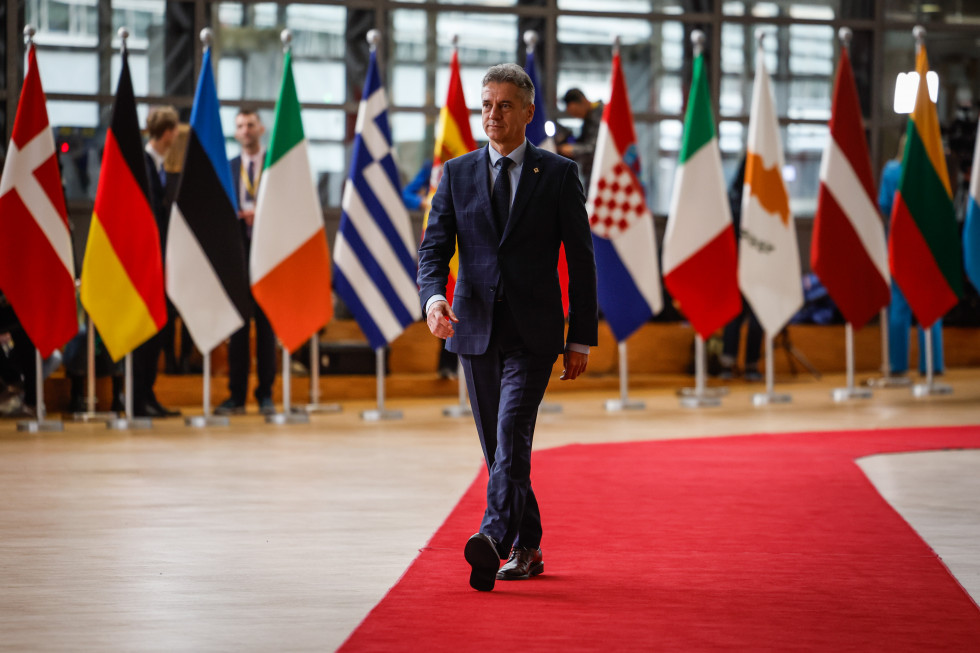Prime Minister in Brussels: In the Middle East, the protection of civilians on both sides is of key importance

Prime Minister Robert Golob is attending the two-day October European Council meeting in Brussels | Author Anže Malovrh/STA
"It is important to protect civilians on both sides and not so much what we call the cessation of hostilities, and we will insist on that," said the Slovenian Prime Minister on his arrival in Brussels. According to the latest draft conclusions, EU leaders are expected to call for a humanitarian pause that would allow humanitarian aid to be delivered to Gaza, and not for a humanitarian ceasefire. According to the Prime Minister, it is important that Europe maintain a united voice on the conflict in the Middle East.
In an invitation to the members of the European Council, President Charles Michel also called for united and coordinated action, in line with the EU values enshrined in the Treaties. As stated in the letter, the EU is committed to the effective delivery of humanitarian aid and to meeting the most basic needs in Gaza, as well as to preventing the escalation of the conflict in the wider region.
"We will insist on the need to establish humanitarian corridors and to protect critical infrastructure such as hospitals. It is also important to call again on all parties to adhere to the principles of international humanitarian law. This is a point from which we must not deviate," Prime Minister Golob added ahead of the meeting.
He also touched on the current situation regarding internal border controls and confirmed that he and the Italian Prime Minister, Giorgia Meloni, will discuss, among other things, Italian border controls with Slovenia in mid-November. According to Prime Minister Golob, in recent weeks, European countries have started to tighten controls at state borders and in the interior of the countries due to the outbreak of the conflict in the Middle East and the recent terrorist attacks in Europe. "This is not related to migration flows that come and go. I am sure that if the situation in the Middle East calms down, the internal border control measures will be short-lived," the Prime Minister concluded, expressing the hope that we will be back to where we were before by the Christmas holiday.
